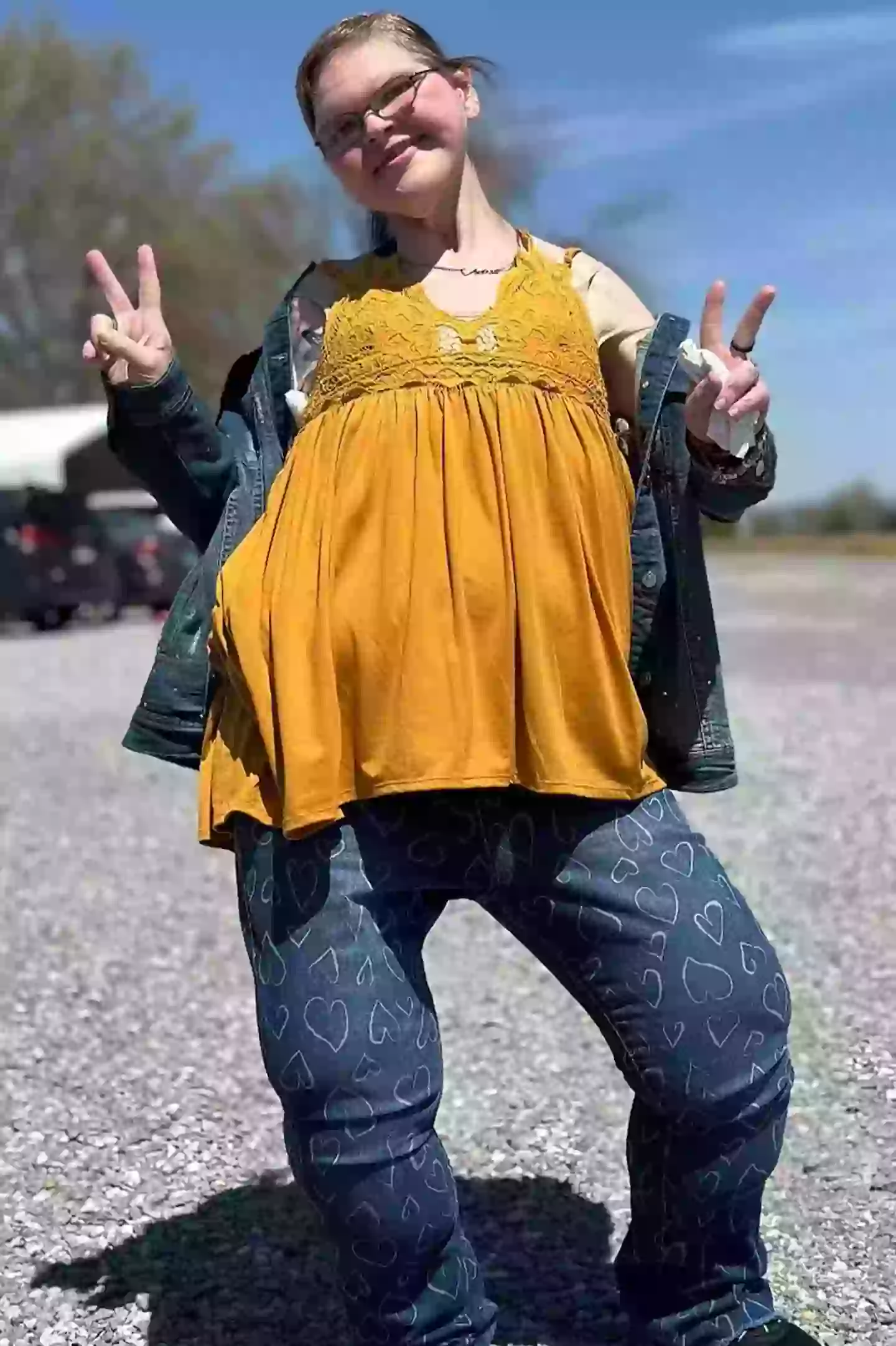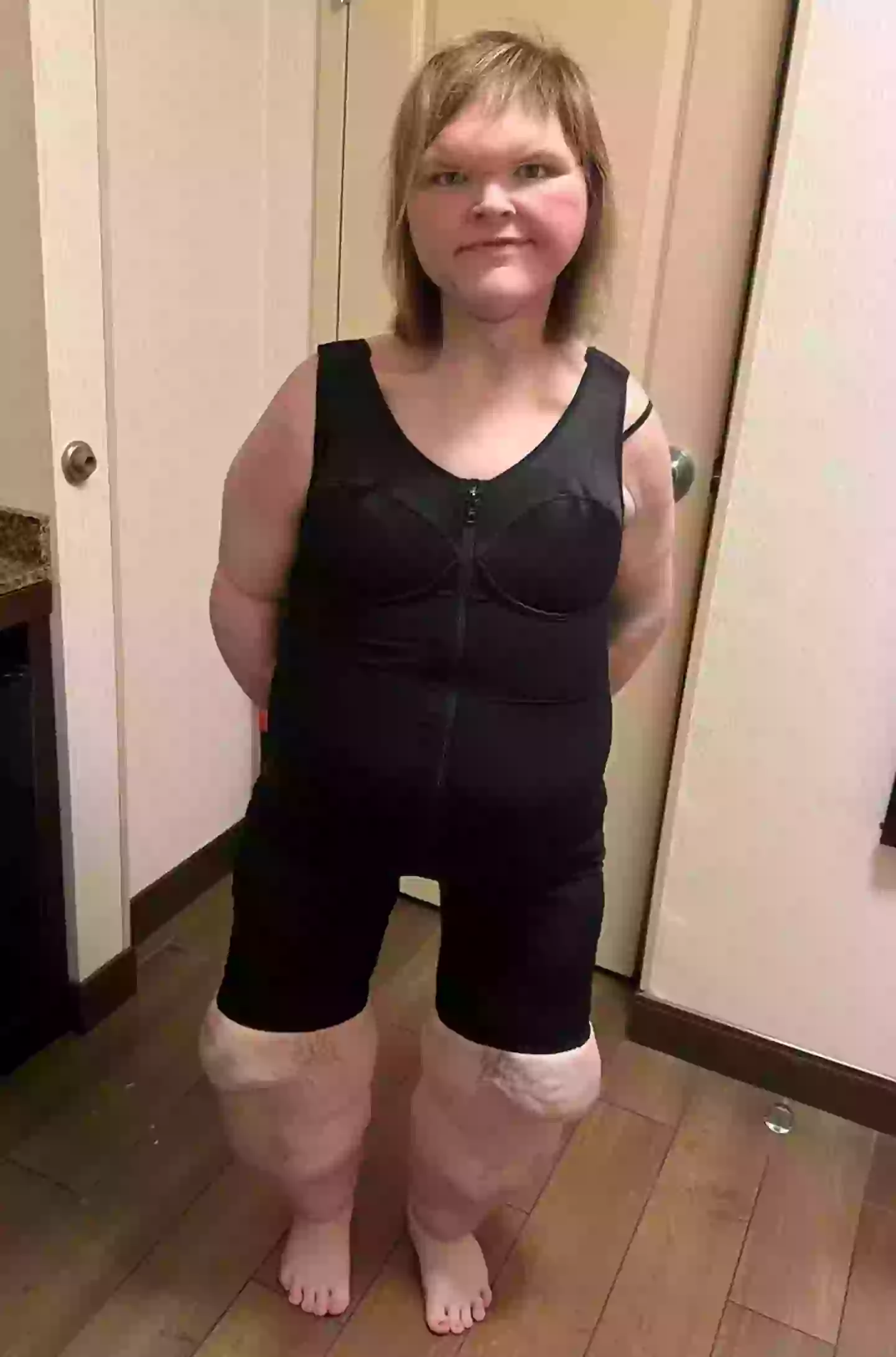1000-Lb Sisters star Tammy Slaton reveals exact weight loss as she shares shocking new transformation photos
1000-Lb Sisters star Tammy Slaton has detailed the amount of weight she has lost since the show's beginning.
Since 2020, Tammy and her sister Amy have documented their weight loss journey in the TLC reality TV show, with the two initially starting off with a combined weight of over 1000 lbs.
Tammy weighed 725 pounds at her heaviest, and she needed extra help, like using a walker and wheelchair to walk around, as well as needing an oxygen tube to breathe.
Her weight loss journey hasn't been the easiest, with the star undergoing multiple visits to rehab for food addiction. She's also faced some personal challenges, such as the loss of her husband Caleb Willingham, who died at age 40 in 2023.
Tammy has persevered throughout all of her hardships, and eventually lost enough weight to qualify for bariatric surgery to help her shed the pounds.

Tammy Slaton has detailed her weight loss transformation (TikTok/Tammy Slaton)
Her remarkable weight loss journey has been evident through incredible transformation photos she shared on her TikTok channel.
Sitting down with the Ezell Film Company recently, Tammy explained how she has lost around 540 pounds from her heaviest to now, with the reality TV star explaining how she has basically lost 'three whole versions of herself'.
She added on the podcast: "I see pictures of me now and I think 'wow.'"
Tammy went on to explain in the podcast her struggles in losing the weight for the surgery, which was only worsened due to the Covid-19 pandemic.
She said she had to lose 30 pounds, but that soon turned into 130 pounds after Tammy put on 100 pounds being stuck indoors, she explained on the podcast.
Nonetheless, she achieved it and is not looking back.
After having her skin removal surgery in recent weeks, Tammy sat down with People to discuss how she's been feeling.
She told People: "After six years and losing over 500 pounds, I was finally approved for surgery. I was just overwhelmed with excitement. I worked really hard for this, and now it's here. I'm pretty sure it was noticeable on my face how immediately shocked and then overwhelmed with joy I was."
While Tammy has had complicated procedures over the years, she admitted to People of being most nervous about the skin removal.
"I was really nervous for the skin removal surgery because I was really just kind of afraid of how I'm gonna feel looking at myself without the belly there," she said.

"The night before my surgery, I was, like, seriously freaking terrified. I was even more nervous about having skin removal surgery than I was for the [sleeve gastrectomy] surgery because they’re actually cutting the whole belly!"
And it's gone extremely well for Tammy since the surgery, with healthcare professionals surprised by her progress.
She added: "I surprised the doctors with how well my body was healing. I ended up coming home from Pittsburgh, like, four days early."
Dad with deadly brain cancer that kills in a year is cancer free after taking new drug
A breakthrough drug is fighting brain cancer head-on.
Glioblastoma is widely considered the deadliest form of brain cancer, killing over 10,000 Americans each year. There is no cure for the highly aggressive disease — many patients survive just nine months after diagnosis.

Ben Trotman was diagnosed with glioblastoma in October 2022 at 40.
Treatment focuses on managing symptoms and extending life via surgery to remove as much of the tumor as possible and radiation therapy and chemotherapy to destroy cancer cells.
Now, researchers from University College London Hospitals are recruiting glioblastoma patients for a trial of the immunotherapy drug ipilimumab. Sold under the brand name Yervoy, the monoclonal antibody stimulates the immune system to recognize and attack cancer cells.
Oncologists are optimistic since a UK father shows no signs of having a tumor after he took ipilimumab before his glioblastoma treatment.
Ben Trotman was diagnosed with glioblastoma in October 2022 at 40.
“The crucial element of this trial is that patients will have their immune system boosted by the drug before they have any other treatment, when they are fit and well enough to tolerate the immunotherapy,” said Dr. Paul Mulholland, the consultant medical oncologist leading the trial.
“We saw with Ben, the one patient recruited to the immunotherapy study, NeAT-GLIO, that he has had clear scans since having the treatment and the tumor hasn’t returned more than two and a half years later.”

Glioblastoma is widely considered the deadliest form of brain cancer, killing over 10,000 Americans each year.
Trotman met with Mulholland, who enrolled him in a clinical trial for ipilimumab. He was the first patient in the world — and the only person in the trial — to take the drug before glioblastoma treatment.
“Getting this diagnosis was the most traumatic experience,” said Trotman’s wife, Emily.
“We were grappling with the fact that Ben had gone from being apparently perfectly healthy to having months to live.”
After taking the drug, Ben underwent radiotherapy and chemotherapy.
Two years and eight months later, his scans are clear.
“It is very unusual to have a clear scan with glioblastoma, especially when he didn’t have the follow-up surgery that had been planned to remove all of the tumor that was initially visible on scans,” Mulholland said.

Ben and Emily Trotman wed in 2023, after he began his immunotherapy treatment.
“We hope that the immunotherapy and follow-up treatment Ben has had will hold his tumor at bay,” he added, “and it has so far, which we are delighted to see.”
In January 2023, months after his diagnosis, Ben married Emily. The couple welcomed a daughter, Mabel, earlier this year.
They enjoy taking her for walks along with their rescue dog, Jerry.
“We are trying to live as normal a life as possible,” Emily said.
“We are in a unique position of which there is no precedent and which comes with a great deal of uncertainty,” she continued. “We want to live each day as if it were our last, but we also want to plan for the future, which we hope to have.”
Researchers plan to recruit 16 glioblastoma patients like Ben over 18 months.
After taking ipilimumab, the trial participants will undergo radiotherapy and chemotherapy and perhaps surgery depending on the extent of their disease.

Dr. Paul Mulholland and Dame Siobhain McDonagh, who raised funds for the new clinical trial of ipilimumab.
The trial is being funded by Dame Siobhain McDonagh, a member of the British Parliament, whose sister died of glioblastoma in 2023.
“My beloved sister Margaret was appalled to discover that there had been no advances in brain cancer treatment for decades when she was diagnosed with glioblastoma,” McDonagh said. “Changing this was Margaret’s final campaign and one that I have continued in her memory.”
Treatment will take place at the NIHR UCLH’s Clinical Research Facility at the National Hospital for Neurology and Neurosurgery.
“I am delighted that this new trial, with the same immunotherapy drug I received, is going ahead and others will have the opportunity to take part,” Ben said. “It will give people newly diagnosed with glioblastoma some hope.”




